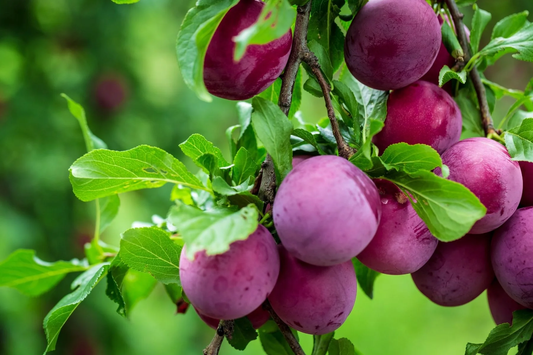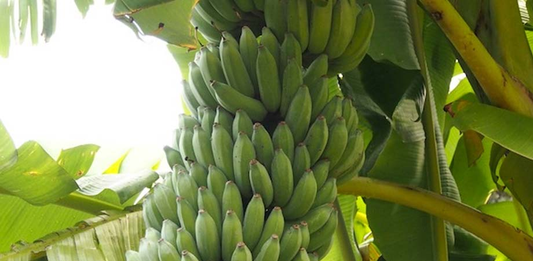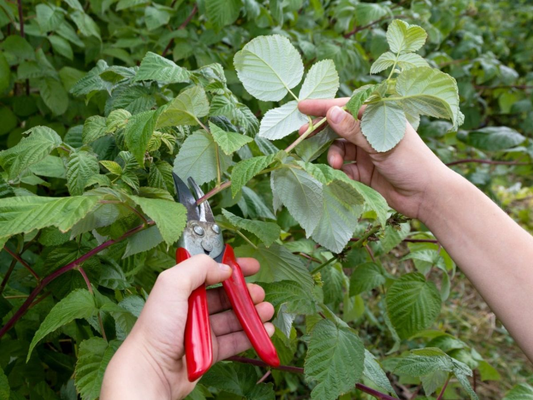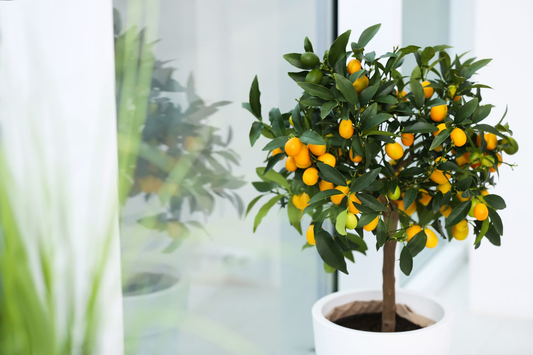Buy Bulk Seeds for Gardening
Share
- 1. Introduction
- 2. Why Buy Bulk Seeds for Gardening?
- 3. Types of Bulk Seeds Available
- 4. How to Choose the Right Bulk Seeds for Your Garden
- 5. Where to Buy Bulk Seeds for Gardening
- 6. The Pros and Cons of Buying Bulk Seeds
- 7. Storing Bulk Seeds for Future Planting
- 8. Tips for Planting Bulk Seeds
- 9. Growing and Harvesting from Bulk Seeds
- 10. Common Mistakes to Avoid When Buying Bulk Seeds
- 11. FAQ – Frequently Asked Questions
1. Introduction
Gardening is a rewarding hobby that allows you to grow your own fresh produce, create beautiful outdoor spaces, and connect with nature. However, getting started can often involve a bit of an investment, particularly when it comes to buying seeds. For gardeners looking to save money and ensure they have enough seeds for their entire garden, buying bulk seeds is a practical solution. Whether you’re growing vegetables, herbs, or flowers, purchasing seeds in larger quantities offers numerous advantages.
Buying bulk seeds can be a game-changer for gardeners of all experience levels. Below are some of the benefits of purchasing seeds in bulk:
- Cost-Effectiveness: Buying seeds in bulk is often cheaper per seed compared to buying individual packets. This can help reduce your overall gardening costs, especially if you're planning a large garden.
- Variety: Bulk seed suppliers often carry a wider selection of varieties, including rare and heirloom seeds that you might not find in smaller packets at local stores.
- Sustainability: By purchasing seeds in bulk, you contribute to less packaging waste, making your gardening practice more eco-friendly.
- Better for Large Gardens: If you have a larger garden, buying seeds in bulk ensures you have enough to sow your entire plot without running out mid-season.
- Less Frequent Restocking: With bulk seeds, you don't need to worry about running out of seeds quickly and can avoid making last-minute purchases.
This guide is designed for anyone interested in gardening, from beginners to experienced gardeners, and those looking to save money while improving their gardening experience. Whether you’re planting your first garden or expanding an established one, understanding how to buy and use bulk seeds can enhance your gardening success.

2. Why Buy Bulk Seeds for Gardening?
When it comes to gardening, purchasing seeds in bulk offers several benefits over buying individual seed packets. Bulk buying can make your gardening experience both more cost-effective and enjoyable. Here’s why you should consider buying bulk seeds:
- Cost Savings: One of the most significant advantages of buying bulk seeds is the cost-effectiveness. When you purchase seeds in bulk, you’re paying a lower price per seed compared to the price of individual packets. This is especially helpful for gardeners planting large areas or those who wish to grow numerous varieties.
- Availability of Rare Varieties: Many bulk seed suppliers offer a wider selection of seeds, including rare, heirloom, or hard-to-find varieties. This allows you to experiment with different plant types or grow unique crops that aren’t always available in smaller retail packets.
- Sustainable Gardening Practices: Buying bulk seeds helps promote sustainability. Instead of purchasing multiple small packets, you get larger quantities, reducing the need for plastic packaging. This practice supports eco-friendly gardening efforts and reduces the carbon footprint associated with individual seed packets.
Additionally, buying bulk seeds has important environmental benefits:
- Less Packaging Waste: Since bulk seeds come with minimal packaging, it helps reduce waste. This is ideal for gardeners who are conscious of their environmental impact and prefer to buy products with less plastic and wasteful materials.
Another benefit of bulk seeds is their potential for storage:
- Storage Potential for Unused Seeds: Unused bulk seeds can be stored for future use, provided they are kept in the right conditions. Bulk seeds typically have a longer shelf life when stored in cool, dry, and dark environments. This means you can buy more seeds than you need and use them over multiple growing seasons, saving you money in the long run.
3. Types of Bulk Seeds Available
When buying bulk seeds, you’ll find that there are various categories of seeds available, each with its own set of varieties. Understanding these categories can help you choose the right seeds for your gardening goals. Below are some of the most popular categories of bulk seeds:
-
Vegetables: Bulk vegetable seeds are a staple for any garden, providing the foundation for home-grown food. Some common vegetables available in bulk include:
- Tomatoes – A variety of heirloom and hybrid types, including Roma, Beefsteak, and Cherry.
- Carrots – Varieties like Nantes, Danvers, and Imperator.
- Spinach – Varieties such as Bloomsdale Long Standing and Savoy, perfect for both small and large gardens.
-
Herbs: Growing herbs from bulk seeds allows you to enjoy fresh, flavorful additions to your dishes all season long. Some popular bulk herb varieties include:
- Basil – Varieties like Genovese, Thai, and Lemon Basil.
- Mint – Peppermint, Spearmint, and Chocolate Mint are widely available.
- Cilantro – Popular varieties such as Slow-Bolt and Santo.
-
Flowers: Flower seeds in bulk can beautify your garden and attract beneficial pollinators. Common bulk flower seeds include:
- Sunflowers – Varieties like Mammoth, Autumn Beauty, and Lemon Queen.
- Marigolds – Tagetes varieties such as Crackerjack and Petite Yellow.
- Wildflowers – A mixture of local wildflowers that support biodiversity and are easy to grow.
-
Fruits: Fruit-bearing plants are a great way to add freshness to your garden. Some popular bulk fruit seeds include:
- Strawberries – Varieties like June-bearing, Ever-bearing, and Alpine.
- Melons – Watermelon, Cantaloupe, and Honeydew melon seeds are available in bulk.
In addition to these categories, you’ll also find a range of seed varieties within each category. Here are some common types of seeds to look for:
- Heirloom Seeds: These are non-hybrid seeds that have been passed down through generations, known for their rich flavors and stability. Heirloom varieties are often favored by gardeners seeking authenticity and diversity.
- Hybrid Seeds: Created by crossbreeding different plant varieties to produce seeds with specific traits like higher yields or disease resistance. Hybrid seeds may not be true to the parent plant, but they are often more robust and productive.
- Organic Seeds: These seeds are grown without the use of synthetic chemicals or fertilizers, appealing to gardeners focused on sustainable and chemical-free gardening.
When selecting bulk seeds, it’s important to consider your experience level. For beginners, the best options are typically easy-to-grow, fast-growing plants such as:
- Vegetables: Carrots, lettuce, radishes, and peas are great choices for beginners because they are quick to sprout and easy to maintain.
- Herbs: Basil, mint, and chives are simple to grow and thrive in most environments.
- Flowers: Sunflowers and marigolds are vibrant, easy-to-grow options that attract pollinators.

4. How to Choose the Right Bulk Seeds for Your Garden
Choosing the right bulk seeds for your garden is crucial to ensuring a successful growing season. A variety of factors can influence your decision, such as climate, gardening space, and the specific needs of the plants. Here’s how you can make the best selection for your garden:
-
Climate and Zone Considerations: When selecting seeds, it’s important to take your local climate and growing zone into account. The USDA Hardiness Zones provide a map that helps gardeners determine which plants will thrive in their area based on average annual minimum temperatures. Here’s how to consider this:
- Each zone represents a range of temperatures, which affect how well certain plants grow.
- Cold-hardy plants are suited for cooler climates, while warm-weather plants thrive in milder zones.
- Ensure the seeds you choose are appropriate for your zone’s temperature range to maximize growth potential.
-
Gardening Space: The size and layout of your garden will influence the type of seeds you select. Whether you have a small backyard garden, a large plot, or plan to grow in containers, your gardening space will play a significant role in your choices:
- Small Garden: Opt for compact, space-saving plants like lettuce, spinach, herbs, and dwarf varieties of tomatoes or peppers.
- Large Garden: You’ll have the freedom to grow a variety of plants, such as pumpkins, squash, or melons, which need more space to spread out.
- Container Gardening: Choose dwarf or compact varieties that do well in pots, such as cherry tomatoes, herbs, or small peppers.
-
Planting Preferences: Different plants have different requirements when it comes to light, soil, and how they grow. Understanding your garden’s conditions will help you select the right seeds:
- Annuals vs Perennials: Annuals complete their life cycle in one season, while perennials return year after year. Annuals like marigolds and tomatoes are great for a quick harvest, while perennials like lavender and asparagus are a long-term investment in your garden.
- Sun vs Shade: Some plants, like tomatoes and peppers, require full sun, while others, such as ferns and lettuce, do better in partial to full shade. Make sure to choose seeds that match your garden’s lighting conditions.
- Soil Types: Certain plants thrive in specific soil conditions. For instance, root vegetables like carrots prefer loose, well-drained soil, while leafy greens such as spinach grow well in slightly acidic, rich soil.
-
Ease of Growing: Beginner-Friendly Varieties: If you’re just starting out, it’s best to choose seeds that are easy to grow and maintain. Here are a few beginner-friendly options:
- Vegetables: Lettuce, carrots, radishes, and peas are fast-growing and low-maintenance.
- Herbs: Basil, mint, and parsley are hardy and thrive in most conditions.
- Flowers: Sunflowers, marigolds, and zinnias are simple to grow and require minimal care.
5. Where to Buy Bulk Seeds for Gardening
Finding the right place to buy bulk seeds is essential for ensuring that you get high-quality products for your garden. There are several options for purchasing bulk seeds, ranging from online suppliers to local garden stores. Below are some of the best places to buy bulk seeds:
-
Best Online Nurseries and Seed Suppliers: Online nurseries are convenient and offer a wide selection of bulk seeds. Some of the most trusted online suppliers include:
- Xroci.com: Known for its variety of high-quality live plants and seeds, Xroci.com offers bulk seeds for gardening at competitive prices, making it a reliable option for gardeners looking for both common and rare seed varieties.
- Baker Creek Heirloom Seeds: Specializes in rare, heirloom seeds from around the world, offering everything from vegetables to flowers.
- Johnny’s Selected Seeds: A well-established supplier that provides high-quality bulk seeds, with a focus on organic and non-GMO options suitable for home gardeners and commercial growers alike.
- Local Garden Stores or Co-ops: Shopping locally allows you to support small businesses while finding quality seeds tailored to your region. Many local garden stores and co-ops carry bulk seeds, especially varieties that are well-suited to your local climate and soil conditions. Visiting these stores also gives you the advantage of receiving advice and recommendations from knowledgeable staff.
-
Tips for Finding Reputable Suppliers: When buying bulk seeds, it’s important to ensure the supplier is reputable. Here are some tips to help you find reliable seed sellers:
- Check for customer reviews and ratings to gauge the supplier’s reliability.
- Look for suppliers who offer clear information about seed sourcing, including whether the seeds are non-GMO or organic.
- Choose companies with a reputation for offering quality, fresh seeds that are properly stored and handled.
-
How to Ensure Seeds Are of High Quality: When purchasing bulk seeds, it's crucial to verify their quality. Here’s how to ensure you're getting the best seeds for your garden:
- Look for seeds that are non-GMO and non-hybrid (if you prefer heirloom varieties).
- Choose suppliers who provide information about seed origin, packaging dates, and storage conditions.
- Verify that the seeds are packaged for the current planting season to ensure maximum viability and germination rates.

6. The Pros and Cons of Buying Bulk Seeds
Buying bulk seeds comes with its own set of advantages and challenges. Before committing to bulk seed purchases, it’s important to weigh both the pros and cons to determine if it’s the right choice for your gardening needs.
Pros:
- Cost-effective for Large-Scale Gardening Projects: Buying in bulk reduces the cost per packet, making it an ideal option for gardeners planning large-scale gardening projects or those looking to grow a significant quantity of plants.
- Greater Variety and Selection: Bulk seed suppliers often carry a wider range of varieties, including rare and heirloom options that may not be available in standard retail packets. This gives gardeners access to a broader selection of plants.
- Larger Quantities Mean Fewer Restocks: With bulk seeds, you’ll have plenty to work with for multiple planting seasons, reducing the need for frequent restocking and ensuring you always have the seeds you need on hand.
Cons:
- Storage Space Needed for Extra Seeds: Buying in bulk means you’ll need adequate storage space to keep the seeds dry and cool to maintain their viability.
- Seeds May Have a Shorter Shelf Life: Bulk seeds typically have a shorter shelf life compared to smaller packets, so proper storage is essential to avoid losing seed quality over time.
- Potentially Too Many Seeds for Smaller Gardens: If you have a small garden, purchasing bulk seeds could result in excess seeds that may go unused, leading to waste.
Pros vs Cons
| Pros | Cons |
|---|---|
| Cost-effective for large gardens | Requires space to store extra seeds |
| Greater selection of varieties | Shorter shelf life if not stored properly |
| More seeds = fewer restocks | May be overwhelming for small gardens |
Weighing these pros and cons will help you decide if bulk seed purchasing is the right choice for your gardening needs, whether you’re managing a large garden or just starting out.
7. Storing Bulk Seeds for Future Planting
Proper seed storage is essential to maintain seed viability and ensure that your bulk seeds remain healthy for future planting seasons. By following a few best practices, you can extend the life of your seeds and keep them ready for use whenever you need them.
Best Practices for Storing Bulk Seeds
- Temperature and Humidity Control: - Store seeds in a cool, dry place. Ideal temperatures for seed storage are typically between 40°F (4°C) and 50°F (10°C). - Avoid storing seeds in places where temperatures fluctuate, such as garages or attics, as extreme heat or cold can reduce their viability. - Keep humidity levels low to prevent mold growth and seed degradation. Using silica gel packets in your storage containers can help absorb excess moisture.
- Ideal Containers: - Use airtight containers to protect seeds from moisture and pests. Glass jars, vacuum-sealed bags, or Mylar bags are excellent options for long-term storage. - For larger quantities, consider using plastic or metal bins with tight-fitting lids. Make sure containers are clean and dry before placing seeds inside to avoid contamination.
How to Extend the Life of Seeds
- Cool, Dry Places: The key to extending seed life is storing them in an environment with stable, cool temperatures and low humidity. The more consistent the conditions, the longer the seeds will last. A basement or pantry is often ideal for this purpose.
- Labeling and Tracking: It's important to label your storage containers with the type of seed and the date they were purchased or harvested. This will help you track their age and avoid planting older seeds that may have reduced germination rates.
Organizing Seeds by Type and Planting Season
- Consider organizing your bulk seeds by type (e.g., vegetables, herbs, flowers) and planting season (e.g., spring, summer, fall). This will make it easier to locate and use seeds when it’s time to plant.
- Use small dividers or boxes to keep seeds neatly organized and prevent mix-ups. Keep each seed type together, and be sure to note the optimal planting season for each variety.
8. Tips for Planting Bulk Seeds
Successfully planting bulk seeds requires careful attention to soil preparation, planting depth, spacing, and timing. By following these tips, you can ensure that your bulk seeds germinate and grow into healthy, thriving plants.
How to Properly Sow Seeds
- Soil Preparation: - Before planting, ensure the soil is well-drained, loose, and free from weeds. You may need to amend the soil with organic matter such as compost or well-rotted manure to improve its fertility. - For most seeds, the soil should be slightly moist but not waterlogged. Make sure the soil temperature is appropriate for the specific seeds you're planting. Use a soil thermometer to check the temperature before sowing.
- Planting Depth: - Different seeds require different depths for optimal germination. A general rule of thumb is to plant seeds at a depth that is about 2 to 3 times the size of the seed. - Smaller seeds (e.g., lettuce, carrots) should be planted closer to the surface, while larger seeds (e.g., beans, squash) need deeper planting.
Spacing Guidelines for Different Seed Types
- Vegetables: - Space seeds 1 to 2 inches apart for small plants like carrots or spinach. For larger plants like tomatoes or squash, space seeds 3 to 4 feet apart.
- Herbs: - Herbs like basil and cilantro should be spaced around 6 to 12 inches apart, depending on the variety.
- Flowers: - Flower seeds often need more room to spread. Space them 6 to 18 inches apart, depending on the plant’s size when fully grown.
When and Where to Plant Seeds Based on Season and Climate
- Timing: - Consider the planting season and your local climate. Check the USDA Hardiness Zone map to determine the best planting time for each seed type. - Cool-season crops like peas, lettuce, and spinach should be planted early in the spring or fall, while warm-season crops like tomatoes, peppers, and beans should be planted after the last frost in the spring.
- Location: - Ensure the planting area receives the appropriate amount of sunlight. Most vegetables and flowers require at least 6 to 8 hours of sunlight daily. - Choose a location with well-drained soil to prevent waterlogging, which can lead to seed rot.
Watering and Care After Planting
- Watering: - Water seeds gently after planting to keep the soil moist but not soggy. Use a fine-mist spray or a watering can with a soft spout to avoid disturbing the soil or seeds. - Once seeds have germinated, continue to water regularly, ensuring that the soil stays evenly moist, especially during dry periods.
- Ongoing Care: - As the seeds grow, thin out any overcrowded seedlings to allow space for healthy development. - Keep an eye out for pests or diseases, and take action quickly if you notice any issues.

9. Growing and Harvesting from Bulk Seeds
Once you’ve planted your bulk seeds, it’s time to care for your plants as they grow and eventually harvest the fruits of your labor. Proper maintenance is key to ensuring a successful harvest. Here are some essential tips for growing and harvesting your plants.
How to Care for Plants as They Grow
- Fertilization: - Use a balanced fertilizer to ensure your plants receive the nutrients they need. Organic fertilizers such as compost or well-rotted manure can be beneficial, especially for vegetables and flowers. - Be cautious not to over-fertilize, as this can lead to excessive leaf growth at the expense of fruiting or flowering.
- Pest Control: - Regularly inspect your plants for signs of pests like aphids, caterpillars, or whiteflies. Use organic pest control methods like neem oil or insecticidal soap to keep pests in check. - Encourage beneficial insects like ladybugs and predatory beetles, which naturally control pest populations.
- Pruning and Maintenance: - For many plants, regular pruning helps promote healthy growth and improves air circulation. Remove dead or diseased leaves and stems to prevent the spread of disease. - For fruit-bearing plants, prune away any suckers or extra growth that might divert energy away from producing fruit.
Harvesting Tips for Different Types of Plants
- Vegetables: - Tomatoes: Harvest when the tomatoes are fully colored and slightly soft to the touch. Pick them before they over-ripen to avoid attracting pests. - Peas: Harvest when the pods are full and firm, but before they become overripe and tough. Regular picking encourages more pods to form.
- Flowers and Herbs: - Deadheading: Regularly remove spent flowers to encourage new blooms and prolong the flowering season. - Herbs: Harvest herbs like basil and cilantro by cutting the stems just above the leaves. For plants like mint, prune regularly to encourage fresh growth. - Harvesting for Seeds: Let flowers and herbs go to seed if you plan to save them for next season. Allow the seed heads to dry fully before collecting seeds to ensure their viability.
10. Common Mistakes to Avoid When Buying Bulk Seeds
Buying bulk seeds can be a great way to save money and grow a variety of plants, but there are common mistakes that gardeners often make when purchasing and using bulk seeds. Avoiding these mistakes will help ensure your gardening experience is successful and rewarding. Here are some key mistakes to be mindful of:
1. Overbuying Seeds for a Small Garden
- It's easy to get excited about the variety of seeds available in bulk, but buying more seeds than you need can be a waste, especially if you have a small garden. Remember, even with bulk seeds, there is a limit to how many plants your garden space can accommodate.
- Consider the size of your garden and how much space each plant will require before making your purchase. It's better to buy a manageable amount and re-order if necessary rather than overstocking.
2. Not Considering Growing Seasons or Climate Zones
- Each plant variety has specific requirements for temperature, sunlight, and growing season. Make sure to consider your local climate zone and the seasonality of the plants you’re purchasing. Failing to do so could result in poor growth or plants that don't thrive in your environment.
- Check the USDA Hardiness Zone map to match your garden's location with plants suited to your climate. Many bulk seed suppliers will provide planting zone recommendations for each variety to help guide you.
3. Poor Storage Leading to Poor Seed Viability
- Improper storage is one of the most common causes of seed failure. If bulk seeds are not stored in cool, dry, and dark conditions, they may lose their viability before you get a chance to plant them.
- To avoid this, store your seeds in airtight containers, such as glass jars or vacuum-sealed bags. A cool, dry location away from direct sunlight is ideal for seed storage.
4. Ignoring Plant Care After Sowing
- After sowing your bulk seeds, it’s important to continue caring for your plants properly. Overlooking their needs, such as water, sunlight, and nutrient levels, can lead to weak or stunted growth.
- Ensure that your plants are receiving adequate sunlight and water based on their specific needs, and regularly check soil moisture levels. Don’t forget to address issues such as pest control and fertilization as the plants grow.

11. FAQ – Frequently Asked Questions
Here are some frequently asked questions about buying and using bulk seeds. These answers will help you make informed decisions and avoid common pitfalls in your gardening journey.
1. How long do bulk seeds last?
- The shelf life of bulk seeds depends on the type of seed and how they are stored. In general, most seeds can last between 1 to 5 years if stored properly.
- Storage Tips: To extend the shelf life of your seeds, store them in a cool, dry place, away from direct sunlight and humidity. Airtight containers, like glass jars or vacuum-sealed bags, work well to preserve seed viability. You can also include desiccants like silica gel to absorb excess moisture.
2. Can I store bulk seeds for the next year?
- Yes, you can store bulk seeds for the next year, as long as they are properly stored to maintain their viability.
- How to Store Seeds for Next Season: Follow the same storage guidelines: keep seeds in an airtight container in a cool, dry, and dark place. Label containers with the seed type and date of purchase so you know which seeds to plant in the upcoming season.
3. Do bulk seeds require special care when planting?
- Bulk seeds generally don’t require special care when planting, but there are a few considerations to keep in mind when sowing them.
-
Planting Tips:
- Ensure that you plant at the correct depth and spacing for each type of seed, as recommended by the supplier.
- Prepare the soil properly before planting, making sure it is well-draining and enriched with compost if needed.
- For smaller or finer seeds, consider using a seed starter tray for easier handling and even distribution.
4. Are bulk seeds better than packets for new gardeners?
- Bulk seeds can be a great option for experienced gardeners or those with larger gardens, but they may not always be ideal for new gardeners.
-
Pros for Beginners:
- Cost-effective for those who need to plant large areas.
- More variety to choose from.
-
Cons for Beginners:
- Too many seeds for small gardens.
- Requires knowledge of seed storage and planting techniques to avoid waste.
5. Can I buy organic bulk seeds?
- Yes, many bulk seed suppliers offer organic seeds that are free from synthetic pesticides and fertilizers.
-
How to Find Organic Bulk Seeds:
- Look for reputable seed suppliers that specialize in organic products.
- Check if the seeds are certified organic, which ensures they meet specific organic growing standards.
- Read the product descriptions carefully to ensure the seeds are grown without synthetic chemicals.
These answers should help clarify some of the most common concerns when buying and using bulk seeds. If you have any other questions, feel free to reach out!
Additional Resources
Top 10 Best Fruits for Low-Maintenance Gardens You’ll Love




